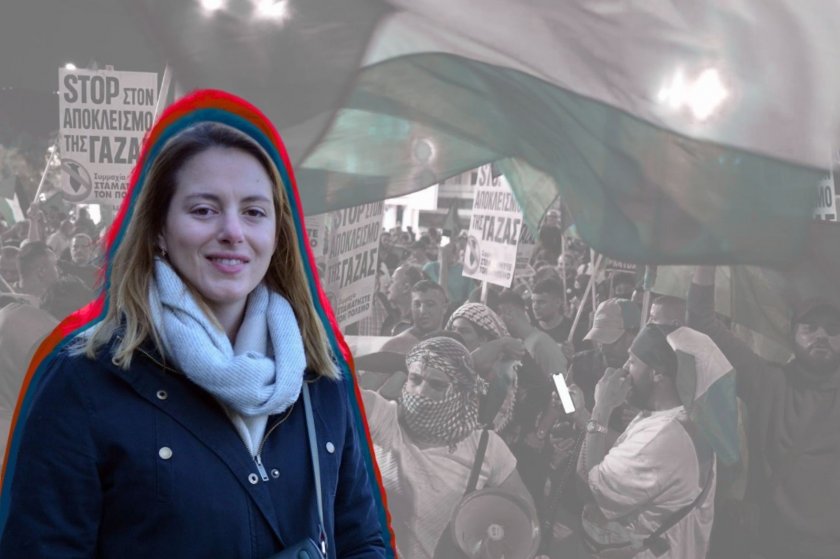India’s media unfreedoms: Criminalizing Journalism and Free Rein for Hate Propaganda
Journalist Geeta Seshu, Founding Editor of Mumbai based “The Free Speech Collective”; wrote of the accusation of journalism, the surveillance of critical journalists, and hate propaganda in India.

Geeta Seshu | Photograph: IPI
Geeta Seshu*
On August 15, 2021, India entered the 75th year of its independence from British rule with a battered and bruised media, openly servile or self-censoring and divided as never before. Pockets of defiance valiantly stave off court cases, raids by government agencies and, now with the Pegasus spyware revelations, a mind-boggling level of pervasive surveillance.
Touted as the world’s largest democracy, India arguably has more media than anywhere else, too – with 143,423 registered news publications as of March 2021, and at least 914 television channels, at least 388 of which are news channels.
Yet it scores low on almost all global press freedom indices. Impunity rules as journalists are killed and attacked or jailed and face criminal charges for their reportage. Scores of journalists lost their jobs in the wake of a total lockdown due to the Covid-19 pandemic. A majority of news media blatantly toes the official line, heavily dependent on government advertising to stay afloat. India’s prime minister has not addressed a single press conference so far, bypassing private news media or preferring to engage only with select media houses.
India has the highest number of Internet shutdowns in the world, reaching its nadir in Kashmir with the unprecedented shutdown of all communication hours before the abrogation Article 370 of the Indian Constitution, which accorded a special status to the State of Jammu and Kashmir in August 2019. India features high in transparency reports of social media companies for countries with content take-down requests.
This year, in its latest attempt to tame independent online media, the Indian government put into place highly constricting regulatory mechanisms for online intermediaries and a Digital Media Ethics Code for online news media.
PEGASUS REVELATIONS: GOVERNMENT IN DENIAL
Despite evidence, the Indian government continues to deny the purchase of Pegasus spyware from the Israeli-based NSO group, used to conduct surveillance of mobile phone data of more than 300 persons, including 40 journalists, human rights activists, lawyers, politicians, including of the ruling BJP, senior judges, government officials and even citizens like a junior court assistant who had filed a complaint of sexual harassment against then Chief Justice of India (CJI) Ranjan Gogoi.
Journalists who were under this incredible level of invasive surveillance have petitioned the Supreme Court of India to demand a court-appointed enquiry. To date, demands of the opposition in India’s Parliament to have a discussion on the issue have been stonewalled and virtually ignored.
HATE PROPAGANDA DOMINATES NEWS CYCLE
Prominent television channels perceived to be close to the ruling BJP blatantly purvey hate speech and inflammatory programming. Their programmes demonize Muslims and accuse them, incorrectly, of spreading the Covid-19 virus or of stealing Hindu girls on the pretext of love or taking over Hindu land for their religious work. With weak self-regulatory mechanisms, the channels go unpunished.
Dominant news channels ignore or discredit important events of the day, whether the ongoing farmers agitation against laws that strike a death blow to agriculture in India, environmental policies and laws that will destroy natural resources, the criminal mishandling of the Covid-19 pandemic that saw the death of an estimated 4.5 million people, even given gross undercounting, a disastrous lockdown that wreaked havoc on the lives of migrant workers and an economy that shows no signs of recovery from its downward spiral.
Weakened from within and without, how can the media in India fulfil its primary role to inform the public and hold the government accountable? More than ever, there is a need for strong collective efforts to defend the right to speak and be heard. Ultimately, the democratic right of citizens to freedom of expression is at stake.
* Geeta Seshu, a journalist for more than three decades, is a founding editor of The Free Speech Collective and campaigns and researches on violations of free speech in India. She is based in Mumbai, India.
Forwarding to the next article...
10 seconds remaining





Follow Evrensel